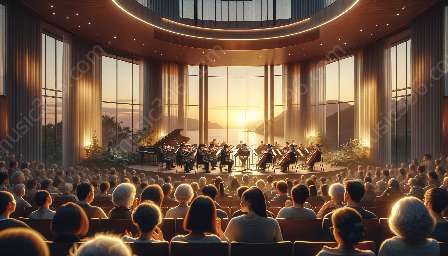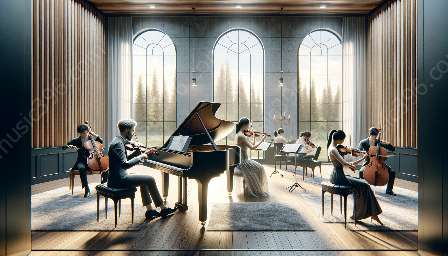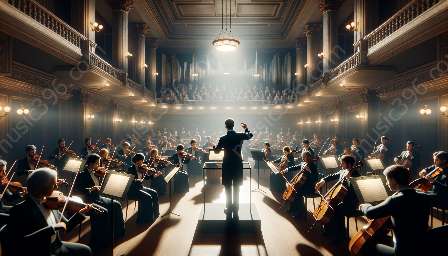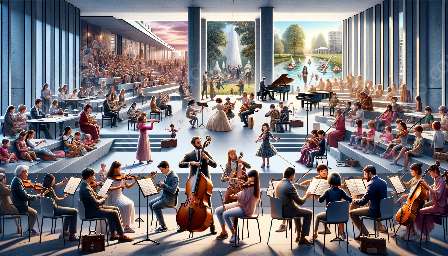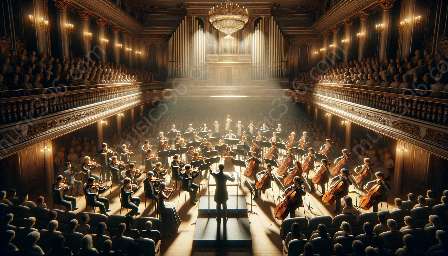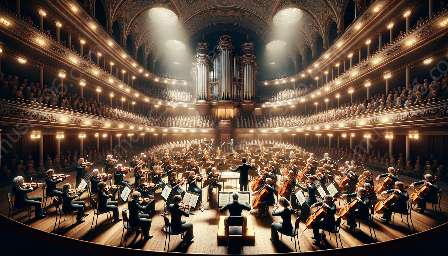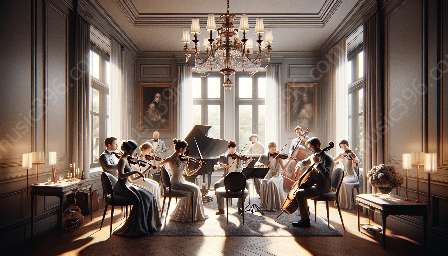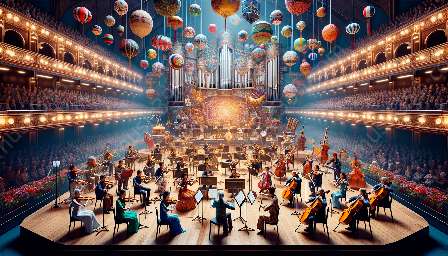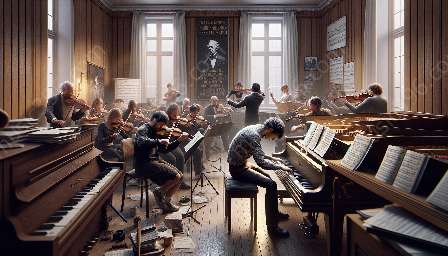Classical music, with its rich history and tradition, has been significantly influenced by cross-cultural exchange. This influence can be observed in the way classical music is composed and performed, reflecting a global tapestry of musical styles, techniques, and traditions. In this comprehensive exploration, we delve into the diverse ways in which cross-cultural exchange has impacted classical music, embracing a global perspective that highlights the fusion of traditions and the evolution of classical music in a multicultural context.
Classical Music in a Global Context
Classical music has evolved over centuries, drawing inspiration from diverse cultures and musical traditions around the world. From the fusion of Eastern and Western musical elements to the integration of folk music and indigenous melodies, classical music has been enriched by a multitude of global influences. These influences have not only shaped the composition of classical music but have also revolutionized the performance and interpretation of classical works. As we examine the impact of cross-cultural exchange, we uncover the harmonic, melodic, and rhythmic innovations that have permeated classical music, creating a truly globalized art form.
The Fusion of Musical Traditions
Cross-cultural exchange has led to the fusion of musical traditions, resulting in a diverse and dynamic classical music landscape. Composers have been inspired by the exotic sounds of distant lands, incorporating elements of indigenous music into their compositions. This integration has given rise to a fusion of styles, where classical compositions are imbued with the flavors of different cultures, blending traditional instruments, scales, and rhythms to create unique and captivating musical experiences.
Exploration of Ethnomusicology
Understanding the influence of cross-cultural exchange on classical music requires an exploration of ethnomusicology, the study of music in its cultural context. Ethnomusicologists have meticulously documented the cross-pollination of musical ideas across continents, uncovering the intricate connections between diverse musical traditions and their impact on classical music composition and performance. By embracing ethnomusicology, we gain a deeper appreciation for the universal language of music and the profound impact of cultural interchange on classical music.
Global Influences in Classical Music
The global influences in classical music epitomize the interconnectedness of diverse musical traditions. From the mesmerizing rhythms of African percussion to the ornate melodies of Asian folk music, classical composers have drawn inspiration from a myriad of global sources, infusing their works with a rich tapestry of musical diversity. This global influence has transcended geographical boundaries, shaping the evolution of classical music and contributing to the vibrant mosaic of styles and expressions found in classical compositions.
Impact on Performance Practices
Cross-cultural exchange has not only influenced classical music composition but has also redefined performance practices. Musicians around the world have embraced the opportunity to interpret classical works in ways that honor their cultural heritage, infusing performances with unique stylistic nuances and interpretive approaches. The result is a kaleidoscope of interpretations that reflect the global tapestry of classical music, celebrating the diversity of performance traditions while maintaining the integrity of the original compositions.
Innovative Collaborations
Cross-cultural exchange has catalyzed innovative collaborations between classical musicians and artists from diverse cultural backgrounds. These collaborations have led to groundbreaking performances that transcend cultural boundaries, fusing classical music with traditional instruments, vocal styles, and improvisational techniques from around the world. Through these collaborative endeavors, classical music has flourished as a global art form, fostering mutual respect and appreciation for diverse musical expressions.
The Future of Cross-Cultural Exchange in Classical Music
As we look to the future, the influence of cross-cultural exchange on classical music continues to evolve. With technological advancements and a growing interconnectedness among global communities, classical composers and performers have unprecedented opportunities to engage in cross-cultural dialogue and exploration. The future promises an even more vibrant and diverse classical music landscape, where the exchange of ideas and artistic innovation will continue to shape the evolution of classical music on a global scale.






